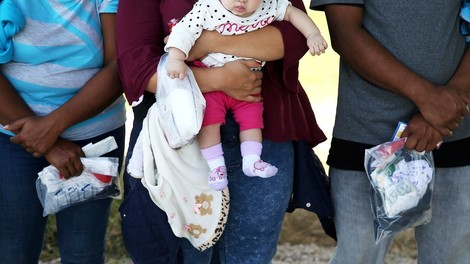Your podcast discovery platform
Curious minds select the most fascinating podcasts from around the world. Discover hand-piqd audio recommendations on your favorite topics.

piqer for: piqd Boom and bust Climate and Environment Global finds Globalization and politics Health and Sanity Technology and society Doing Good Deep Dives
Malia Politzer is the executive editor of piqd.com, and an award-winning long-form journalist based out of Spain. She specializes in reporting on migration, international development, human rights issues and investigative reporting.
Originally from California, she's lived in China, Spain, Mexico and India, and reported from various countries in Africa, Europe and the Middle East. Her primary beats relate to immigration, economics and international development. She has published articles in Huffington Post Highline, The Economist, The Wall Street Journal, Vogue India, Mint, Far Eastern Economic Review, Foreign Policy, Reason Magazine, and the Phoenix New Times. She is also a regular contributor to Devex.
Her Huffington Post Highline series, "The 21st Century Gold Rush" won awards from the National Association of Magazine Editors, Overseas Press Club, and American Society of Newspaper Editors. She's also won multiple awards for feature writing in India and the United States.
Her reporting has been supported by the Pulitzer Center on Crisis Reporting, The Institute For Current World Affairs, and the Global Migration Grant.
Degrees include a BA from Hampshire College and MS from Columbia University Graduate School of Journalism, where was a Stabile Fellow at the Center for Investigative Journalism.
A Chilling Op-ed: The Language Of The Trump Administration Is The Language Of Domestic Violence
This op-ed is utterly captivating. Jessica Winters makes a convincing argument that the language of the Trump administration relies on the same linguistic power-play domestic abusers use to gaslight their victims: "Look what you made me do!"
To establish the basis of her metaphor, she narrates a scene from a documentary on domestic abuse: A drunk man calls the police to come to his home. He is angry: His wife, who is sick, is "neglecting" him. He wants the cops to take her away before his anger becomes violent. The cops do not, and his reaction is smug surrender: He did his part by calling the cops, exonerating himself of whatever happens next. If he later beats his wife, that's on them.
She then links this sentiment to the Trump administration's brutal new policy of separating undocumented children from their parents upon being detained at the U.S.-Mexico border:
“I am leaving this up to you,” the drunk man admonishes the Tampa cops as they are readying to depart his house in “Domestic Violence.” “If this is the way you want to solve it, and leave us both here together, then that’s your business. I did call you.” The man takes a preening satisfaction in how correct he was to notify the proper authorities of the danger posed by the weak, pleading woman in their midst. He loves how gracious he is in deferring to the cops’ judgment. The Trump Administration is a similarly elusive brand of authoritarian: eager to do harm, eager to plead helplessness in the act of harming. “There was a separation,” the judge says, the bureaucratic passive voice redacting the active cruelty it describes. “We don’t want to do this at all,” Jeff Sessions told Hugh Hewitt. In the minds of Trump and his ilk, the misdeeds committed by the parents at the border—fleeing documented danger and violence in their native countries; legally seeking asylum; keeping their children close—transform the American government into an instrument of pain, one that these families are choosing to wield against themselves.
